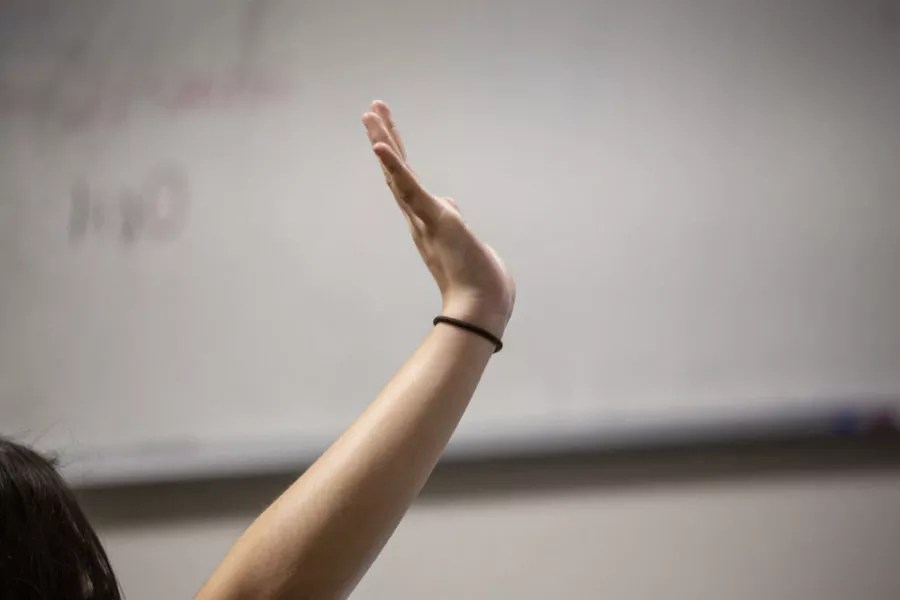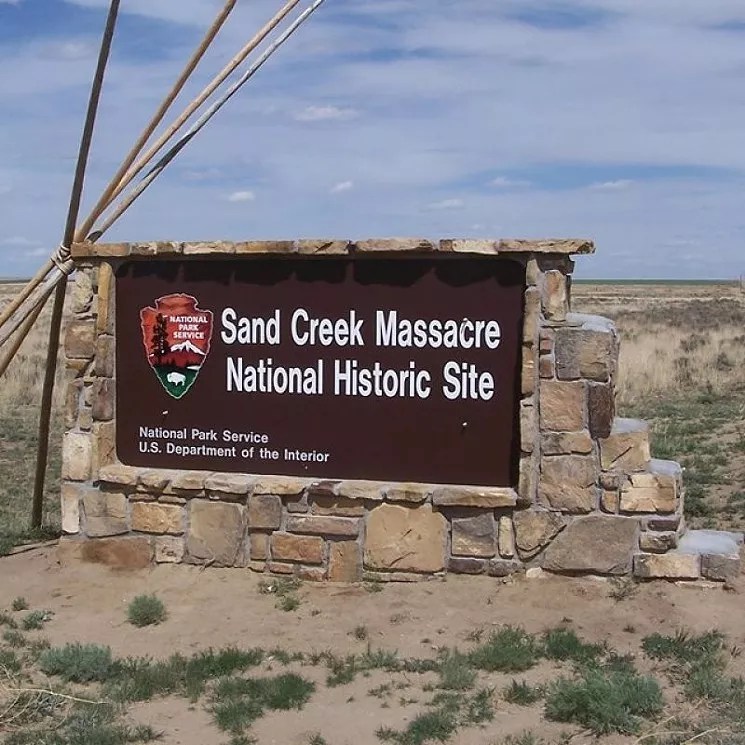
Nathan W. Armes/Chalkbeat

Audio By Carbonatix
At its November 10 meeting, the Colorado Board of Education voted to include references to the LGBTQ community and other minority groups in the state’s social studies education standards.
Last November, a draft of standards that complied with “Inclusion of American Minorities in Teaching Civil Government,” a bill passed in the 2021 legislative session, was presented to the board. But some people expressed concerns about the appropriateness of the material for children.
After going back to the drawing board, the Social Studies Standards Review and Revision Committee made some changes and presented its final recommendations at a board meeting on June 9. That version excluded references to the LGBTQ community and other minority groups. But members of the public objected to this model, too.
The Board of Education took up the standards proposal again at its latest meeting. Boardmember Lisa Escárcega proposed fourteen amendments for the pre-kindergarten through fifth-grade curriculum, calling for the inclusion of references to LGBTQ populations as well as African American, Latino, Asian American, Hawaiian/Pacific, Islander, Indigenous Peoples and religious communities.
For example, one amendment proposed changing the third-grade question “How can community members ensure that all voices and opinions are heard?” to “How can community members ensure that all voices and opinions, including those from African American, Latino, Asian American, Hawaiian/Pacific Islander, Indigenous Peoples, LGBTQ, and religious minorities groups, are heard?”
Boardmember Steve Durham expressed concern about presenting young students with some of that language, particularly references to the LGBTQ community. After seeing a video of a drag queen performing for and reading to children, “I almost considered it child abuse,” he said.
“To deny that these sorts of things happen, are happening, and the parents should be concerned about them is a mistake,” he continued. “To somehow claim that this doesn’t open the door to abuse, I think, is also a mistake. I will vote no on these standards because I think they are anti-parent; they introduce items into discussions in schools that are sometimes age-appropriate and sometimes not age-appropriate.”
Escárcega responded that references to these communities are not about sexual education, but about acknowledging their existence and their place in history and the present.
“I think we need to recognize who our families are, all our families,” added boardmember Karla Esser. “Our families of color, our LGBTQ families, all our families.”

Students will learn about the Sand Creek Massacre.
NPS
Esser also proposed amendments that would bring back some of the things cut from the recommendations in June, including this question for sixth-grade students: “What are some of the barriers that prevent some people from various communities such as African American, Latino, Indigenous peoples, Asian American, Hawaiian/Pacific Islander, LGBTQ, and religious minorities from being ‘contributing’ citizens?”
All of the amendments proposed by Escárcega and Esser passed in a 4-3 vote.
Boardmember Rebecca McLellan introduced an amendment to include the word “fascist” in front of a reference to the German Nazi Party; it was also approved. Durham, who supported the amendment, said that “the words of Hitler and his attack on the Jewish people was in no small measure because he believed them to be capitalists and exploiters.”
Durham proposed amendments of his own, including language that would “describe how the non-violent strategies employed by Dr. King and his followers overcame segregation in the American South” in the curriculum for grades four through twelve. The proposal passed for seventh-grade standards only; McLellan said the language insinuated that segregation has been overcome.
Boardmember Debora Scheffel’s motion to replace the proposed standards altogether with the conservative American Birthright Standards failed in a 4-3 vote, again displaying the split in the board membership.
But the board did vote unanimously to include the Sand Creek Massacre on the list of genocides taught to Colorado students.
After the final vote on the standards, Levi Teachy, board president of PFLAG Denver, an LGBTQ support organization, told the board: “I’m a nature educator and conservation educator for the United States Fish and Wildlife Service, and I just wanted to take a moment to teach you guys a little bit about nature. This is called the Rose-Veiled Fairy Wrasse; this fish is a transgender fish; it starts out as a female kind of dull in its life; then eventually it becomes a colorful male. And I’m just thankful that you guys are allowing trans students and LGBTQ students to be represented.”